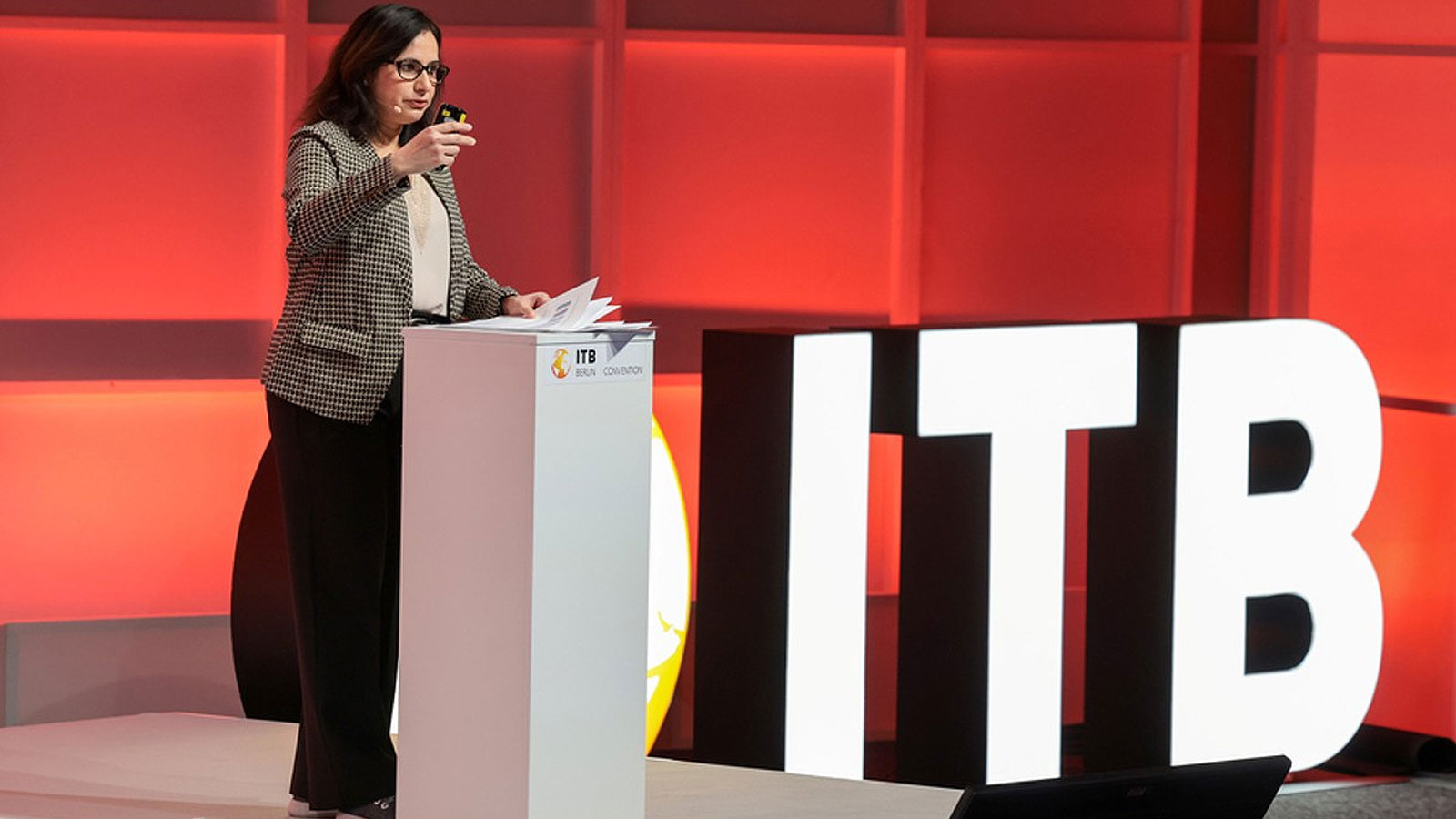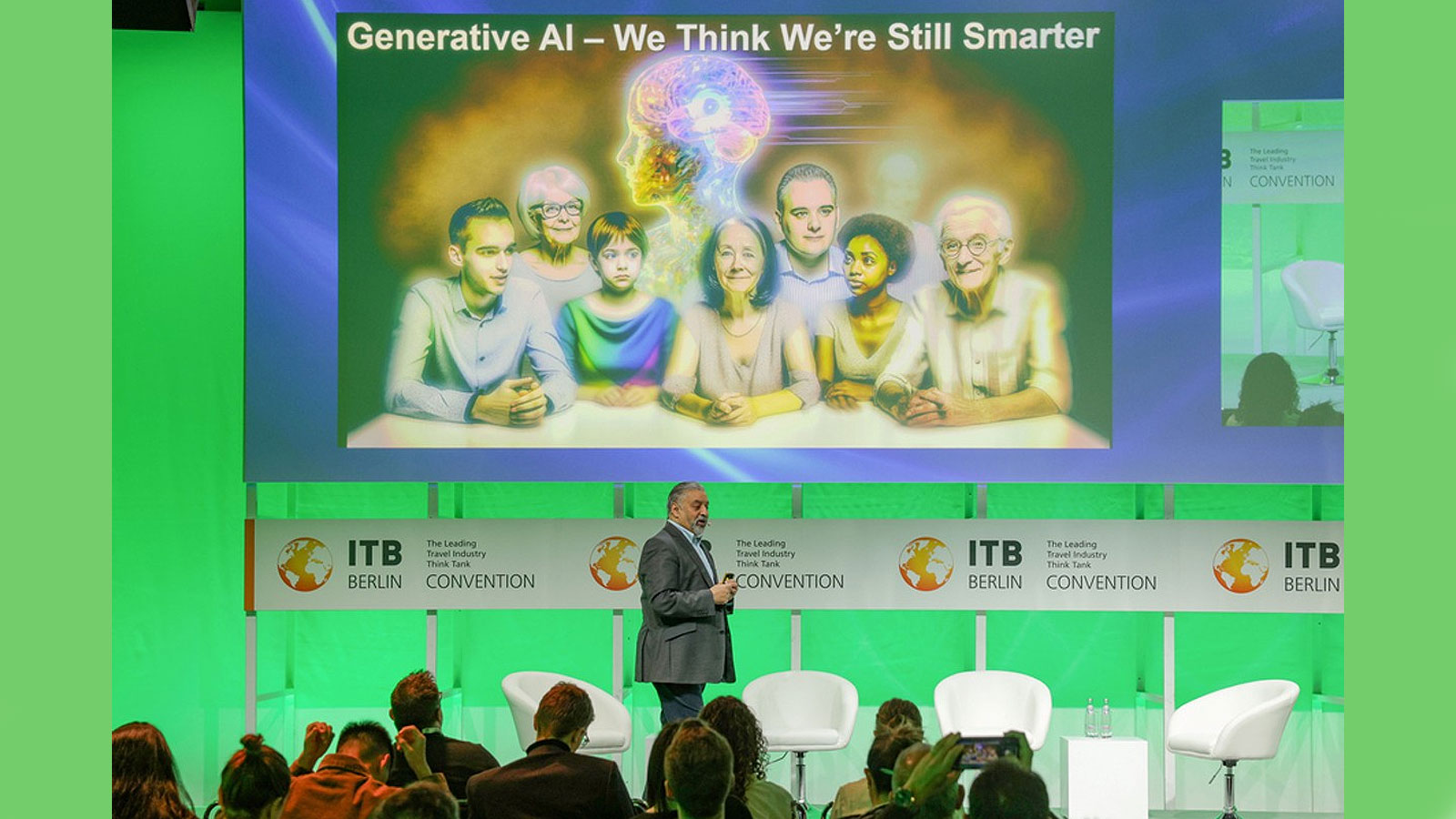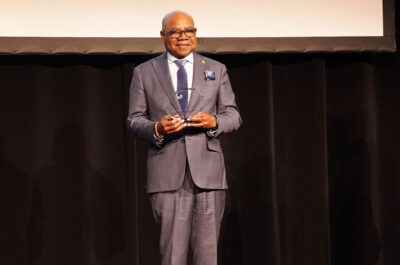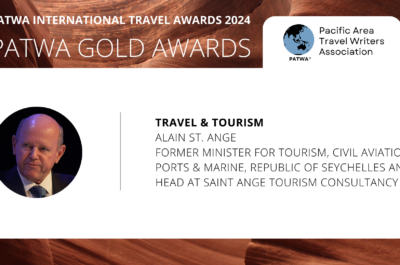
The use of AI by agents and personalised travel apps is an important future trend.
At the ITB Berlin Convention, Charuta Fadnis, Senior Vice President of research firm Phocuswright, delivered an insightful overview of the tourism sector’s robust recovery from the COVID-19 pandemic, while also casting a spotlight on the transformative role of generative AI. Fadnis explored the technology’s burgeoning impact on both providers and consumers, highlighting its widespread recognition but varied adoption rates across different demographics and nations. In her analysis, generative AI’s influence is undeniable, with about 80% of individuals across age groups acknowledging its significance. The adoption landscape, however, shows notable disparities, with the U.S. showing a 50% comfort level with Large Language Models, in contrast to 35% in Germany and 30% in France.
The presentation underscored the tangible benefits for companies integrating AI into their digital strategies, citing the case of Tripadvisor. The travel platform saw a remarkable threefold increase in customer spending within just three months of launching an interactive AI service, compared to the performance of standard offerings.
Looking forward, Fadnis envisions a future where virtual agents manage travel bookings and a unified “One Travel app” could emerge, with Google Maps flagged as a potential frontrunner given its continuous enhancements and rich user data insights. She stressed the critical, yet dual-edged, potential of AI: “We cannot ignore AI, as its effect will be transformative. Perhaps some people overestimate its short-term impact, but there are probably many who underestimate its long-term effect.”
The conversation also touched upon the challenges posed by AI, such as the risk of generating misleading reviews. Fadnis suggested a solution in the fusion of generative AI with blockchain technology, offering a method to authenticate user identities and reduce fraudulent activities.
In addition to technological trends, Fadnis shared findings from recent surveys on tourism and sustainability, pointing out a gap between travelers’ stated priorities and their actual choices. While half of the respondents recognized the importance of environmental standards, only a tenth acted on these considerations in reality.
The dialogue at ITB Berlin emphasized the shared responsibility among tour operators, governments, destinations, and consumers in fostering sustainable travel. Fadnis advocated for clearer standard definitions and the communication of practical, appealing recommendations to travelers, aiming to bridge the gap between intention and action in sustainable tourism practices. This approach, she argued, is essential for engaging consumers in the collective effort towards a more sustainable and responsible travel industry.
AI’s potential for shaping a more inclusive travel industry
In his keynote speech on the Green Stage at ITB Berlin, Rohit Talwar, a distinguished futurist specializing in tourism and civil aviation and the CEO of Fast Future, emphasized the transformative power of Artificial Intelligence (AI) and Virtual Reality (VR) in creating a more inclusive travel industry. Speaking on the Green Stage, Talwar highlighted the critical role these technologies play in expanding access to travel experiences and aiding in destination selection, thereby advocating for a broader inclusivity within the sector.
Amid a surge in travel demand post-pandemic, Talwar pointed out the emerging trends reshaping traveler preferences. A significant shift has been observed, with a majority eager to invest more in travel, seeking new experiences across diverse destinations and accommodations. This shift away from familiar locales is evident, with less than half of the travelers inclined to revisit known places.

Rohit Talwar, CEO of Fast Future.
The influence of AI and Machine Learning (ML) on the travel industry’s business models is undeniable, with 86% of tour companies acknowledging their impact. Despite the growth of AI-driven startups, which have seen over 211 entities emerge in the last decade focusing on AI-based data analytics, the adoption among travelers for trip planning remains lukewarm. A considerable segment of the populace, about 38%, still resists utilizing AI technologies like ChatGPT for destination selection, preferring traditional methods for inspiration and booking.
Personal aspirations remain the predominant inspiration for 92% of tourists when choosing their next destination, with recommendations from friends and relatives also playing a significant role. Interestingly, only a small fraction of travelers are swayed by marketing efforts, indicating a preference for direct engagements with service providers and valuing convenience in booking and payment processes.
Sustainability and environmental concerns also dictate travel decisions for over half of the respondents, highlighting the growing awareness of these issues among travelers. However, diversity and inclusion considerations appear less prevalent among those not directly affected by systemic disadvantages. The presence of armed conflict in a destination significantly affects the choices of 72% of travelers, underscoring safety and security concerns.
Talwar’s call to action for the travel industry centers on embracing transformative thinking and lifelong learning. He advocates for increased support for women and inclusive opportunities that transcend economic and physical barriers, suggesting that technologies like VR could democratize travel experiences. His vision for the future of travel is one where innovation and inclusivity converge, offering broader access and enriching experiences for all.
Theodore is the Co-Founder and Managing Editor of TravelDailyNews Media Network; his responsibilities include business development and planning for TravelDailyNews long-term opportunities.































































































































































































